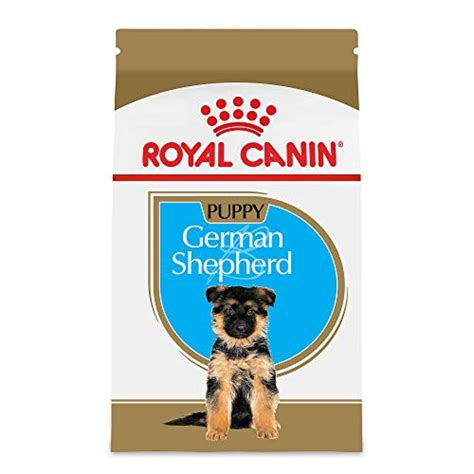German Shepherd puppies are known for their rapid growth and high energy levels. As your GSD reaches 9 months old, it's crucial to provide them with the right nutrition to support their development. In this comprehensive guide, we'll explore the best dog food options for your 9 month old German Shepherd, along with feeding guidelines and nutritional considerations.
Understanding Your 9 Month Old German Shepherd's Nutritional Needs
At 9 months, your German Shepherd is in a critical stage of growth. They're not quite adults yet, but they're no longer tiny puppies either. This transitional period requires special attention to their diet to ensure proper development.
Key Nutritional Requirements
- High-quality protein: Essential for muscle development and growth
- Balanced fats: Necessary for energy and coat health
- Controlled calcium levels: Important for proper bone development
- Vitamins and minerals: Crucial for overall health and immune function

Best Dog Food Options for 9 Month Old German Shepherds
When choosing the best puppy food for German Shepherds, consider these top-rated options:
- Royal Canin German Shepherd Puppy Dry Dog Food
- Hill's Science Diet Large Breed Puppy Food
- Purina Pro Plan Large Breed Puppy Food
- Blue Buffalo Wilderness Salmon Recipe Large Breed Puppy Food
- Eukanuba Large Breed Puppy Food
Comparison Table: Top Dog Foods for German Shepherd Puppies
| Brand | Protein % | Fat % | Calcium % | Key Features |
|---|---|---|---|---|
| Royal Canin | 28% | 14% | 1.2% | Breed-specific formula |
| Hill's Science Diet | 24.5% | 15% | 1.1% | Balanced nutrition |
| Purina Pro Plan | 28% | 13% | 1.3% | High-quality protein |
| Blue Buffalo Wilderness | 32% | 16% | 1.2% | Grain-free option |
| Eukanuba | 26% | 14% | 1.2% | DHA for brain development |
Feeding Guidelines for Your 9 Month Old German Shepherd
Proper portioning is crucial to maintain a healthy weight and support growth. Here's a general guideline:
- 9 month old German Shepherd weight: Typically 55-70 lbs
- Daily food intake: 3-4 cups of high-quality puppy food, divided into 2-3 meals
Remember, these are general guidelines. Consult with your veterinarian to determine the best feeding plan for your individual puppy.
High Protein Dog Food for German Shepherds
German Shepherds benefit from a high-protein diet to support their muscular build and energy needs. Look for puppy foods with at least 22-26% protein content. Some excellent high-protein options include:
- Orijen Puppy Large Breed Dog Food (38% protein)
- Wellness CORE Large Breed Puppy (35% protein)
- Merrick Grain-Free Puppy Recipe (28% protein)
The Best Food for German Shepherd Puppy: Wet vs. Dry
While dry kibble is often recommended for its dental benefits and convenience, some German Shepherd puppies may benefit from a mix of wet and dry food. Wet food can be especially helpful for picky eaters or puppies needing extra hydration.
Benefits of Wet Food:
- Higher moisture content
- Often more palatable
- Can be easier to eat for young puppies
Benefits of Dry Food:
- Promotes dental health
- More economical
- Easier to store and measure
Consider mixing wet and dry food to provide a balanced diet that your puppy will enjoy.
German Shepherd Puppy Food: Special Considerations
When selecting the best food to feed German Shepherd puppies, keep these factors in mind:
- Large breed formulas: Choose foods specifically designed for large breed puppies to ensure proper growth rates.
- Avoid overfeeding: German Shepherds are prone to hip dysplasia, and excess weight can exacerbate this condition.
- Consistent feeding schedule: Stick to regular meal times to aid digestion and establish routine.
- Gradual transitions: When changing foods, do so gradually over 7-10 days to avoid digestive upset.
How Much to Feed a 3 Month Old German Shepherd
While this article focuses on 9 month old German Shepherds, it's worth noting that feeding requirements change as puppies grow. At 3 months, German Shepherd puppies typically need:
- Weight: Around 22-30 lbs
- Daily food intake: 2-3 cups of puppy food, divided into 3-4 meals
Good Dog Food for German Shepherd Puppy: Ingredients to Look For
When evaluating dog food for your German Shepherd puppy, prioritize these ingredients:
- High-quality animal protein (chicken, lamb, fish)
- Wholesome carbohydrates (sweet potatoes, brown rice)
- Healthy fats (fish oil, flaxseed)
- Fruits and vegetables for vitamins and antioxidants
- Probiotics for digestive health
German Shepherd at 9 Months: Growth and Development
At 9 months, your German Shepherd is nearing their adult size but still has some growing to do. Here's what to expect:
- Height: 20-24 inches at the shoulder
- Weight: 55-70 lbs
- Physical development: Nearly full adult size, but still filling out
- Mental development: High energy, curious, and in need of consistent training
Proper nutrition during this stage is crucial for supporting both physical and mental development.
Best Puppy Food for German Shepherd: Homemade Options
While commercial dog foods are convenient and nutritionally balanced, some owners prefer to prepare homemade meals. If you choose this route, consult with a veterinary nutritionist to ensure your puppy receives all necessary nutrients. A sample homemade meal might include:
- Lean protein (chicken, turkey, or lean beef)
- Complex carbohydrates (brown rice or sweet potato)
- Vegetables (carrots, green beans, or spinach)
- Healthy fats (fish oil or flaxseed oil)
- Calcium supplement (as recommended by your vet)
Conclusion: Choosing the Best Food for Your 9 Month Old German Shepherd
Selecting the best dog food for your 9 month old German Shepherd involves considering their unique nutritional needs, growth stage, and individual preferences. Whether you opt for a high-quality commercial puppy food or decide to prepare homemade meals, ensure that your GSD receives a balanced diet rich in protein, with appropriate levels of fat and controlled calcium.
Remember to monitor your puppy's weight and adjust portions as needed. Regular check-ups with your veterinarian can help ensure your German Shepherd is growing properly and receiving optimal nutrition.
By providing the best possible nutrition during this crucial growth stage, you're setting the foundation for a healthy, happy adult German Shepherd. With the right diet and care, your 9 month old German Shepherd will continue to thrive and develop into the loyal, intelligent, and strong companion this breed is known to be.
